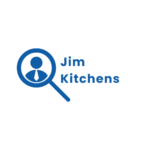In today’s fast-paced job market, career development jobs are more crucial than ever. They not only help individuals navigate their professional journeys but also empower organizations to cultivate talent and drive success. I’ve seen firsthand how investing in career development can transform careers and boost employee satisfaction.
Whether you’re just starting out or looking to advance in your field, understanding the landscape of career development roles can open up exciting opportunities. From career coaches to organizational development specialists, these positions play a vital role in shaping the future of work. Let’s dive into the various career development jobs available and explore how they can impact your professional life.
Career Development Jobs
- Career Development Jobs Are Essential: These roles help individuals navigate their professional journeys and empower organizations to enhance talent and drive success.
- Variety of Positions Available: Key roles include career coaches, organizational development specialists, training and development managers, talent development specialists, and HR professionals, each playing a unique part in employee growth.
- Coaching and Mentoring Focus: Coaching roles assist individuals in achieving career aspirations, while mentoring builds personal and professional growth through experience sharing.
- Skills Required for Success: Effective communication, analytical abilities, and strong interpersonal skills are critical to thriving in career development positions.
- Impact on Organizational Performance: Investing in career development jobs enhances employee satisfaction, boosts competencies, and fosters a skilled and engaged workforce.
- Understanding Role Fit: Knowing the landscape of career development jobs helps individuals and organizations identify the best fit for professional advancement and organizational needs.
Overview of Career Development Jobs
Career development jobs focus on enhancing skills, guiding individuals in career paths, and fostering organizational growth. These roles play a critical part in shaping workforce dynamics and employee satisfaction.
Several key positions exist within this field:
- Career Coaches: Career coaches assist individuals in identifying career goals, developing skills, and creating actionable plans. They provide personalized guidance through assessments and one-on-one sessions.
- Organizational Development Specialists: These specialists collaborate with businesses to improve workplace culture and employee performance. They implement training programs, facilitate change management, and support talent development initiatives.
- Training and Development Managers: Training and development managers design and oversee programs that enhance employee skills. They assess training needs, create curriculum, and evaluate program effectiveness.
- Talent Development Specialists: Talent development specialists identify and nurture employee potential within organizations. They focus on succession planning and ensure alignment between individual aspirations and organizational goals.
- Human Resources Professionals: HR professionals play a vital role in career development by implementing policies that support employee growth. They offer resources for career advancement, performance management, and talent acquisition.
Investing in career development jobs not only leads to personal success but also enhances overall organizational performance. Companies that prioritize these roles benefit from a more engaged and skilled workforce.
Types of Career Development Jobs

Various career development jobs exist that target different aspects of employee growth and organizational success. Understanding these roles helps identify the right fit for individual career paths and organizational needs.
Coaching and Mentoring Roles
Coaching and mentoring roles focus on guiding individuals toward achieving their career aspirations. Career coaches assist clients in setting clear goals and developing actionable plans. Mentors provide support and advice based on their experiences, fostering personal and professional growth. Both roles enhance self-awareness and promote skill acquisition while navigating career transitions.
Training and Development Specialists
Training and development specialists design and implement programs to improve employee skills and knowledge. These professionals assess organizational needs to tailor training initiatives that enhance productivity. By offering workshops, seminars, and e-learning courses, they help employees acquire necessary competencies for career advancement. Their efforts significantly contribute to employee confidence and competence.
Human Resources Professionals
Human resources professionals play a crucial part in career development through policy implementation and employee support initiatives. They create policies that promote career advancement and provide resources for continuous learning. HR professionals also facilitate performance evaluations and skills assessments, ensuring alignment between employee aspirations and organizational goals. Their strategic approach cultivates a culture of growth and development within the workplace.
Essential Skills for Career Development Jobs

Career development jobs require a blend of essential skills that significantly enhance effectiveness in guiding individuals and organizations. Mastering these skills empowers professionals to navigate the complexities of career advancement and employee development.
Communication Skills
Communication skills play a vital role in career development jobs. Clear articulation of ideas fosters understanding and motivates individuals to pursue their aspirations. Professionals must convey information with precision, using both verbal and written formats. Regularly providing constructive feedback helps clients improve and grow in their careers. Active listening, a component of effective communication, builds trust and rapport, enabling deeper connections with clients.
Analytical Skills
Analytical skills are crucial for evaluating individual needs and organizational contexts. Professionals analyze assessment results, performance data, and career trends to identify areas for improvement. Using these insights, they develop targeted strategies tailored to each client or organization. Robust analytical skills enable career development specialists to measure the effectiveness of programs, ensuring they align with evolving industry demands. Strong analytical capabilities drive informed decision-making regarding career paths and employee development.
Interpersonal Skills
Interpersonal skills are essential for building strong relationships in career development roles. Nurturing relationships with clients fosters an environment of trust and collaboration. Skills such as empathy, patience, and adaptability are critical in addressing diverse client needs and adapting strategies based on their responses. Engaging with teams and stakeholders requires an understanding of different perspectives and backgrounds. Interpersonal skills ensure effective collaboration with clients, enhancing overall career development initiatives.
The Importance of Career Development Jobs

Career development jobs play a pivotal role in today’s dynamic job market. These positions help individuals navigate their career paths while organizations cultivate their talent. Investing in career development transformative, enhancing both career trajectories and employee satisfaction.
Career coaches guide individuals in setting meaningful career goals and developing essential skills. Organizational development specialists collaborate with businesses to strengthen workplace culture and boost performance. Training and development managers design programs tailored to improve employee competencies. Talent development specialists focus on nurturing potential within employees, while human resources professionals implement policies that foster growth.
Career development jobs can be categorized into two primary roles: coaching and mentoring, and training and development specialists. Coaching and mentoring roles provide personal guidance, assisting individuals in reaching their aspirations. Training and development specialists create customized programs that enhance knowledge and skills.
The essential skills for success in career development jobs include communication, analytical, and interpersonal abilities. Effective communication articulates ideas clearly and provides valuable feedback. Analytical skills evaluate individual needs and craft targeted strategies that address specific goals. Interpersonal skills build strong relationships, facilitating collaboration and effectively meeting diverse client needs.
Investing in career development jobs not only drives personal success but also fosters overall organizational performance, resulting in a more engaged and skilled workforce.
Essential for Anyone
Embracing career development jobs is essential for anyone looking to advance their professional journey. These roles not only empower individuals but also strengthen organizations by nurturing talent and promoting a culture of growth.
By focusing on the skills and strategies discussed, I can enhance my career prospects while contributing to a more dynamic workplace. The investment in career development pays off in both personal fulfillment and organizational success.
As I explore these opportunities, I’ll find that the right career development role can truly transform my professional path.

